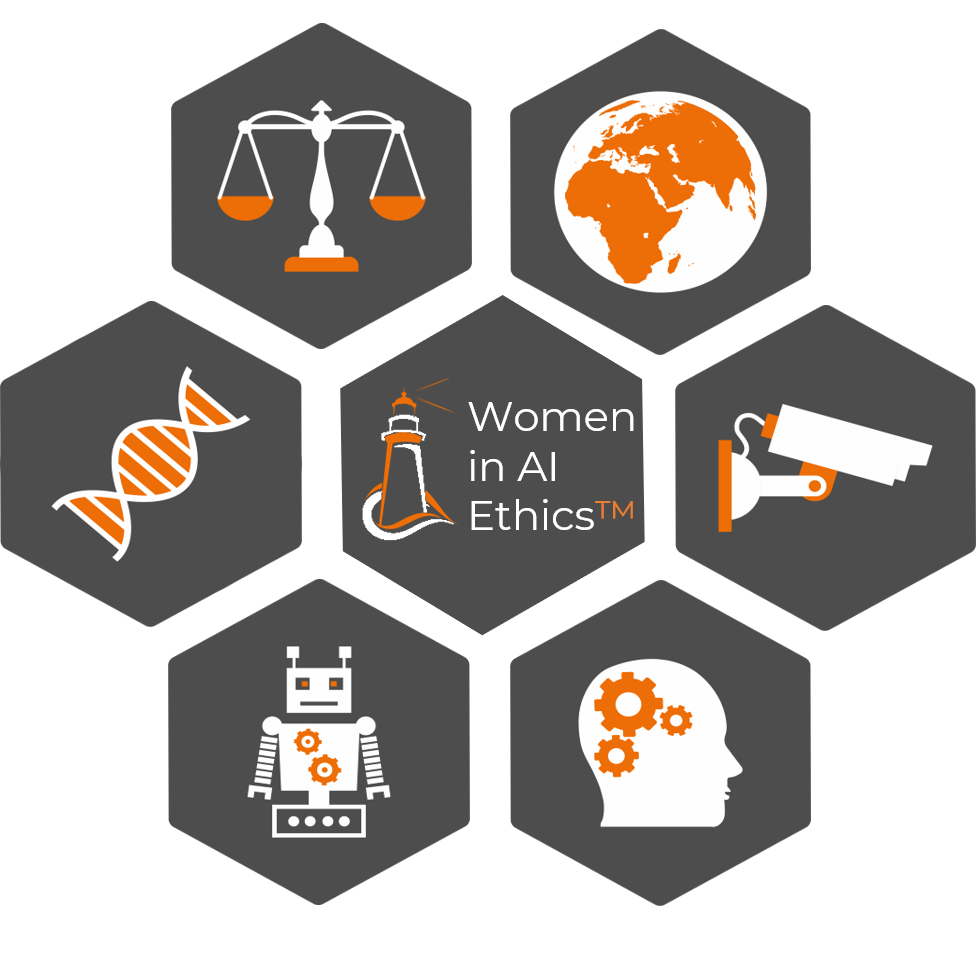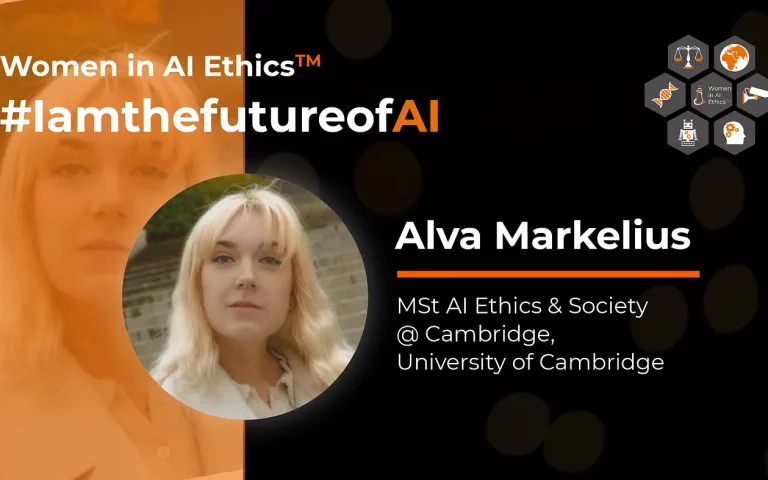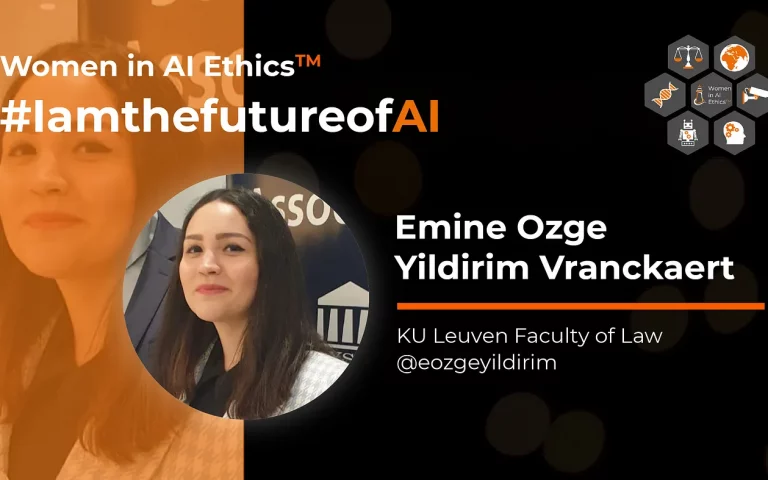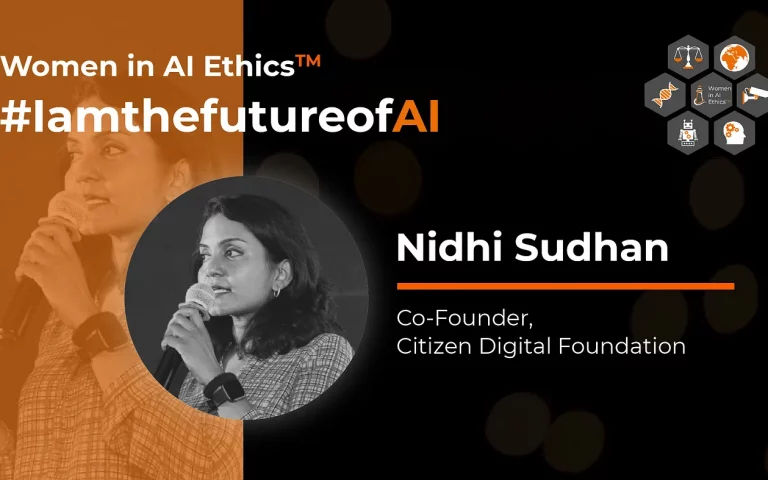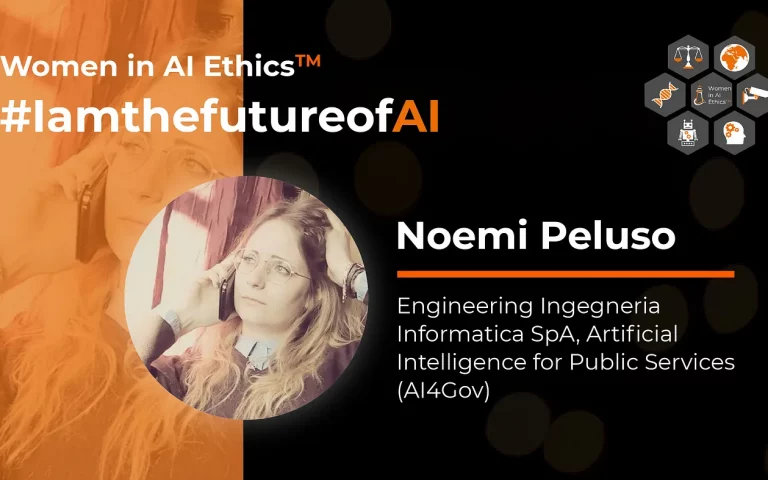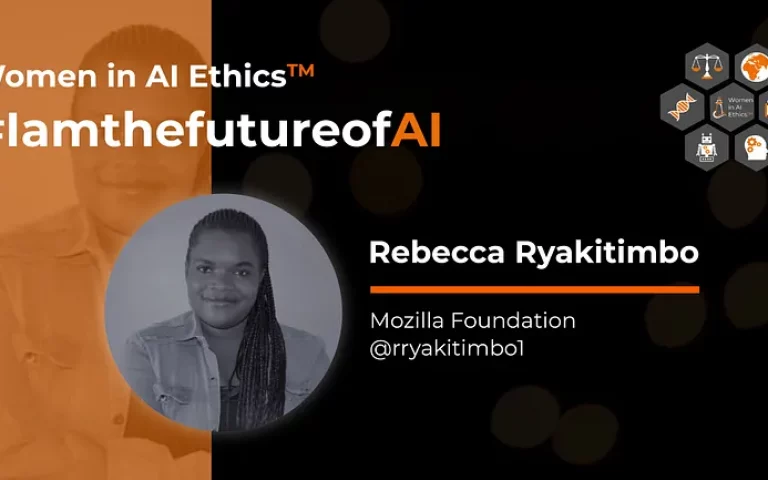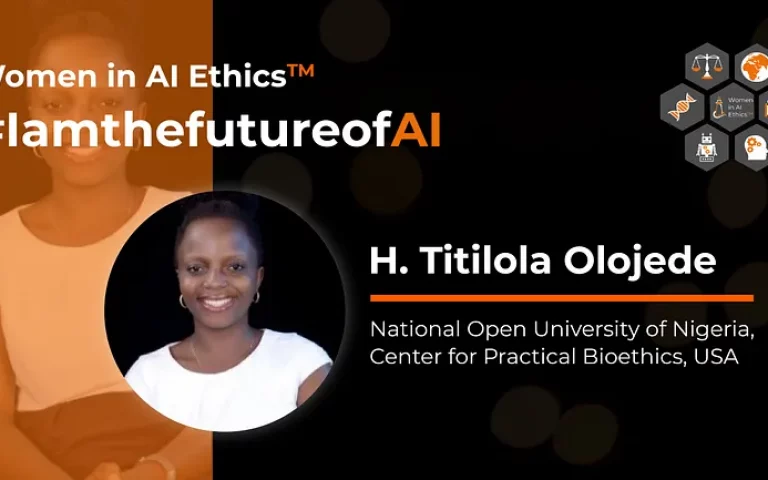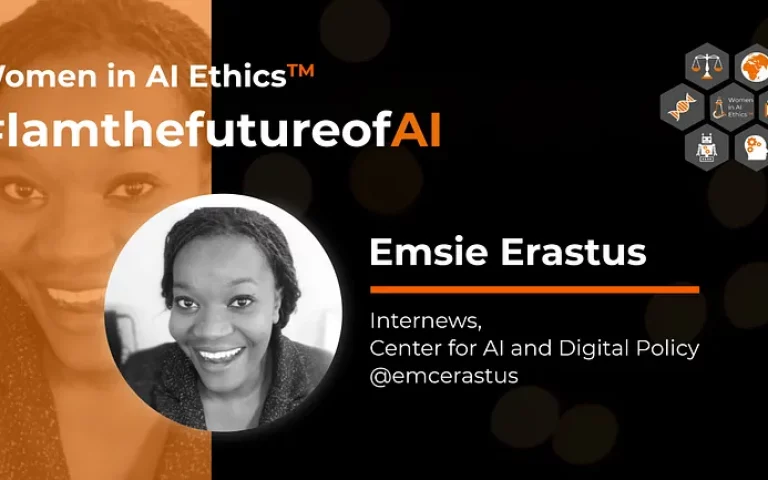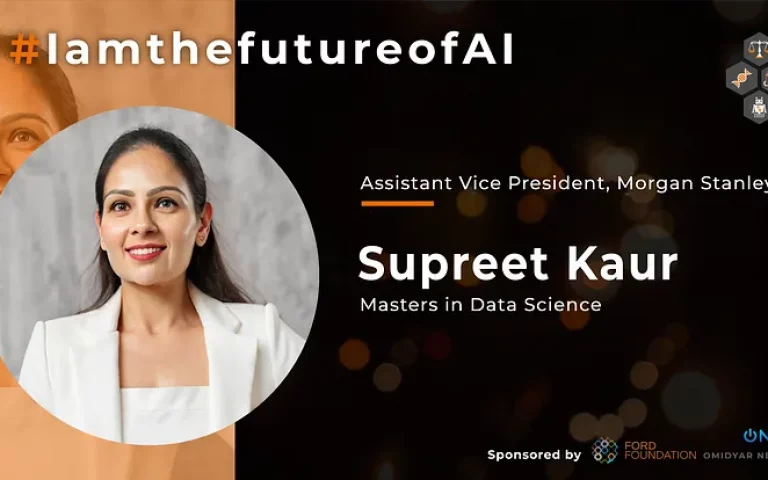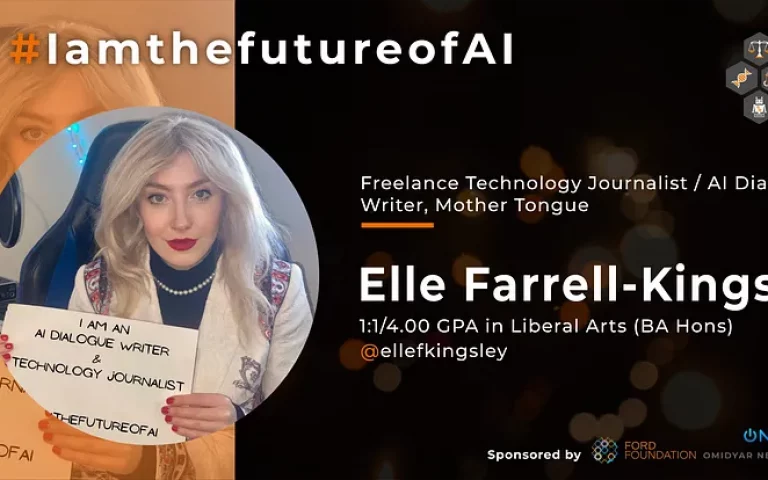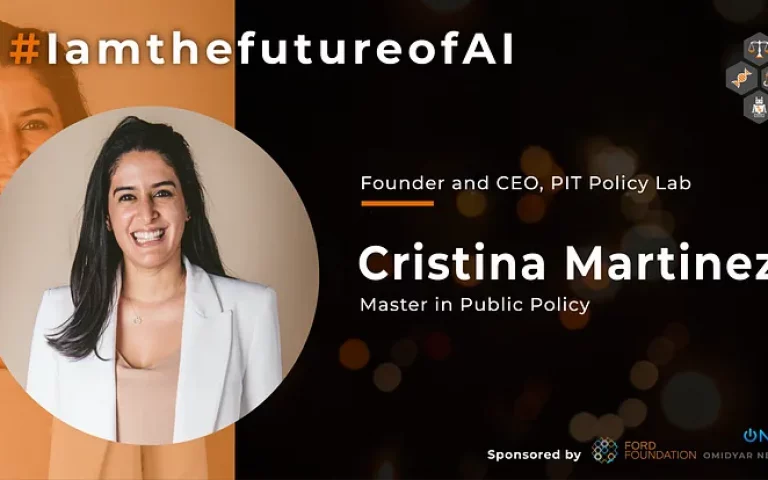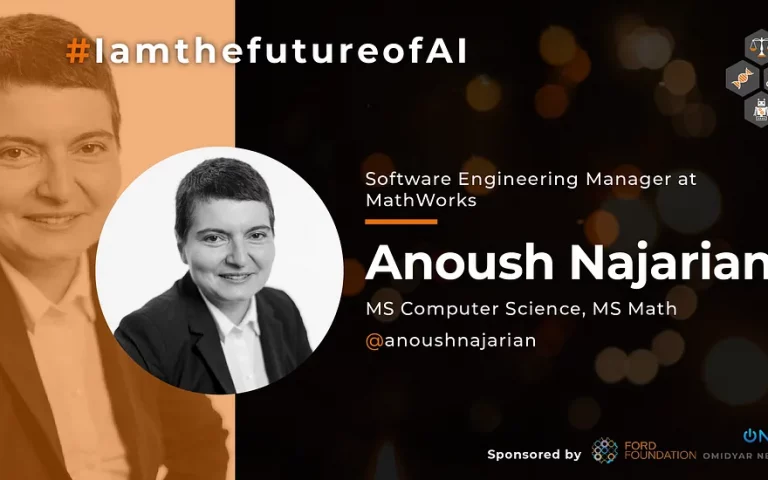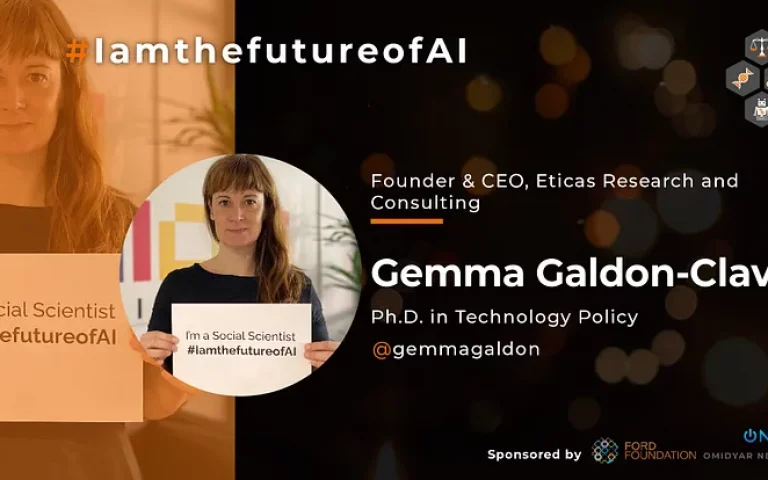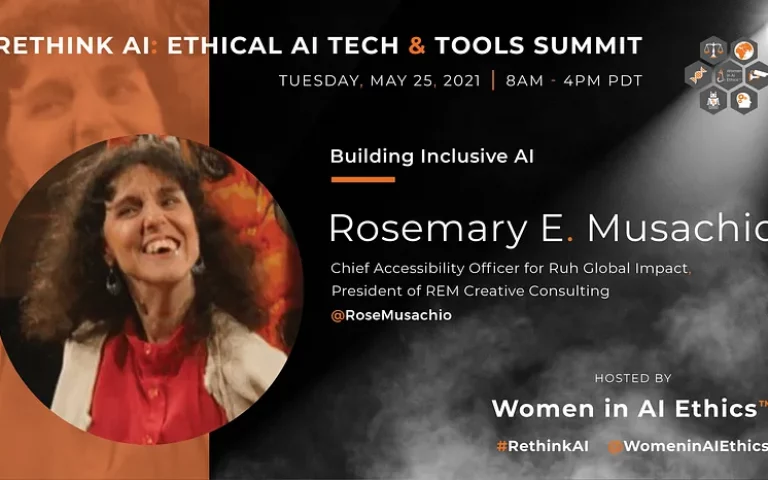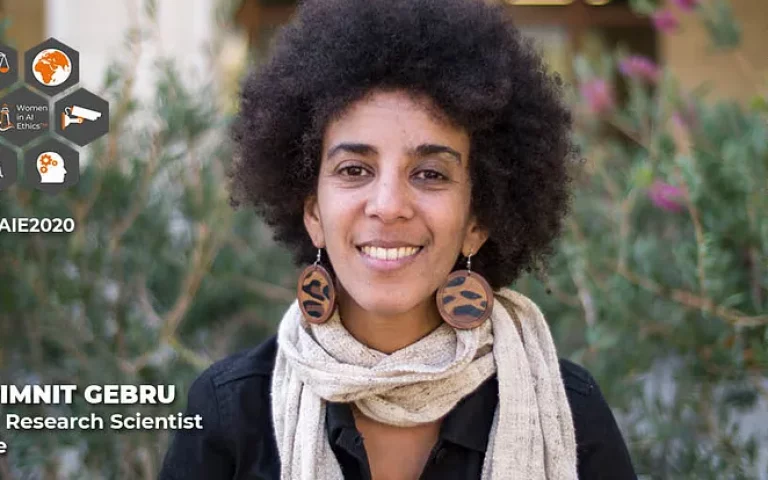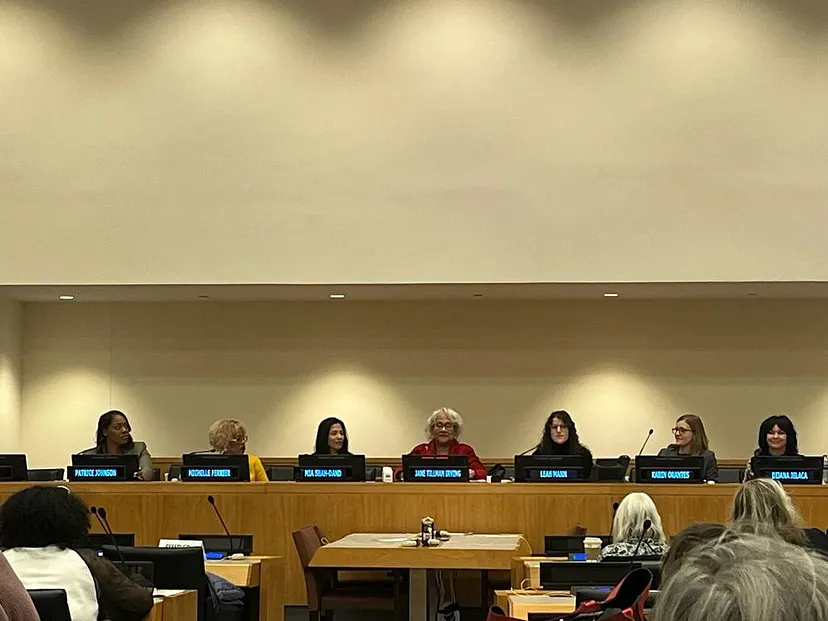
IAWRT panel “Making innovative technology work for women and girls” Photo source: Rebecca Myles
According to the Commission on the Status of Women, the United Nation’s premiere global body fighting for gender equality, three billion people are still unconnected to the internet, most of them are women and girls. This Women’s History Month, I had the opportunity to join other inspiring leaders at a Civil Society event organized by the International Association of Women in Radio and Television (IAWRT) and hosted at the United Nation’s Headquarters in New York for a timely discussion on “Making Innovative Technology Work for Women and Girls.”
Technology has the potential to catalyze positive societal change, however it can also exacerbate existing gender inequities and economic inequalities. Here are some of the key challenges that lie ahead and solutions that can help make technology more inclusive for all of us.
Women do not have equal access to the internet or tech opportunities but even those who do, experience significantly higher levels of gender-based violence and harassment than their male peers. Nurturing STEM (science, tech, engineering, and math) talent at a young age is important but the male-dominated tech industry can be a hostile space where young women, especially women of color are still a minority. There is an urgent need to build support systems for girls and young women who struggle to balance the demands of work and the needs of their families in spaces built by men for men.
As they progress in their careers, women face the double whammy of gender discrimination and ageism, which is a serious threat to their economic and personal well-being. The support for parents, especially single working mothers is inadequate and women who step away to raise children find it challenging to continue their career trajectory. We must take a holistic approach to solving gender inequity and inequalities by supporting women at every stage of their professional lives as well as personal lives, starting with their first role in tech, ensuring they get equal pay as they take on new roles, and easing re-entry into the workforce for those who decided to take a break for personal reasons.
By opening tech roles to women with multidisciplinary backgrounds, such as the humanities or finance, can open new career pathways while also ensuring that technological innovation doesn’t have ethical gaps. Empowering women with skills to build their own technological futures is key to their personal and economic empowerment. Technology has helped raise more awareness about safety issues that affect women and girls in vulnerable communities, but technology by itself cannot keep women and girls safe. Inclusion of women in design and development of innovative tech increases the likelihood that the needs of women who use or are impacted by these technologies are also considered. However, we also need to follow up with greater accountability measures and increased investments in community-based interventions.
It’s critical that gender equity programs center the needs of older women who may have retired from the workforce and are more susceptible to abuse, fraud, and economic uncertainty. Tech literacy programs centered around the needs of older women can help them stay safe and thrive in their twilight years. Replacing technical jargon, and acronyms with simpler terms and translating into local languages can make technology more accessible to non-English speaking communities. Using engaging storytelling medium like films and comic books can help make the space more welcoming to those who feel alienated.
Gender discrimination lies at the heart of many issues that we discussed however, we must acknowledge that equality is not a battle between the genders nor is it a competition between humans and machines for basic survival. There is power in solidarity and meaningful allyship as these issues affect all humans. It’s time for everyone to join this fight for a more equitable human-centered tech future that benefits all of us and not just a select few.
Learn more about the panelists at this inspiring event and their organizations below:
Dr. Michelle Ferrier, President of IAWRT: Troll Busters is an educational service for journalists experiencing digital harms and IAWRT Digital Safe House http://www.troll-busters.com/
Dr. Patrice S. Johnson, Chief Program Officer, Black Girls Code: Training of thousands of black girls from 7 to 16 to lead, innovate, and create in science, tech, engineering, and math (STEM) https://wearebgc.org/
Dr. Dijana Jelača, Professor in the Film Department at Brooklyn College: Role of media and technology in human rights and the intersections between media, screen technology and trauma.
Mia Shah-Dand, Founder, Lighthouse3 and Women in AI Ethics: Pathways for increased representation and inclusion of diverse ethical voices in AI. https://womeninaiethics.org/
